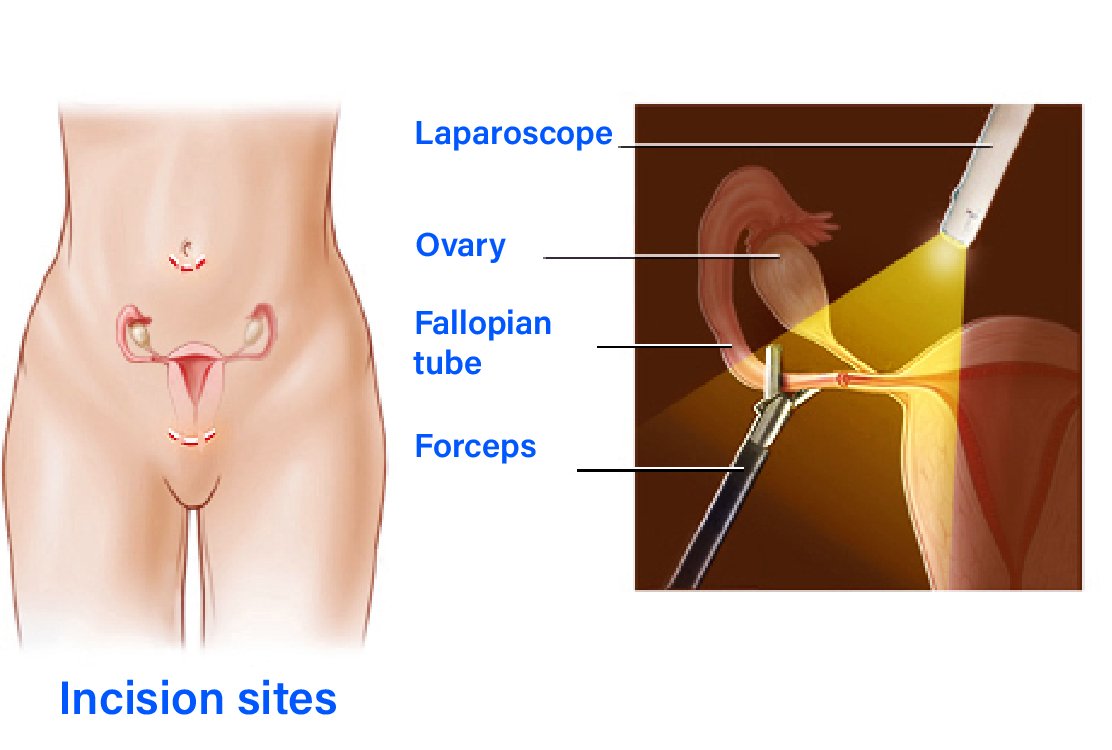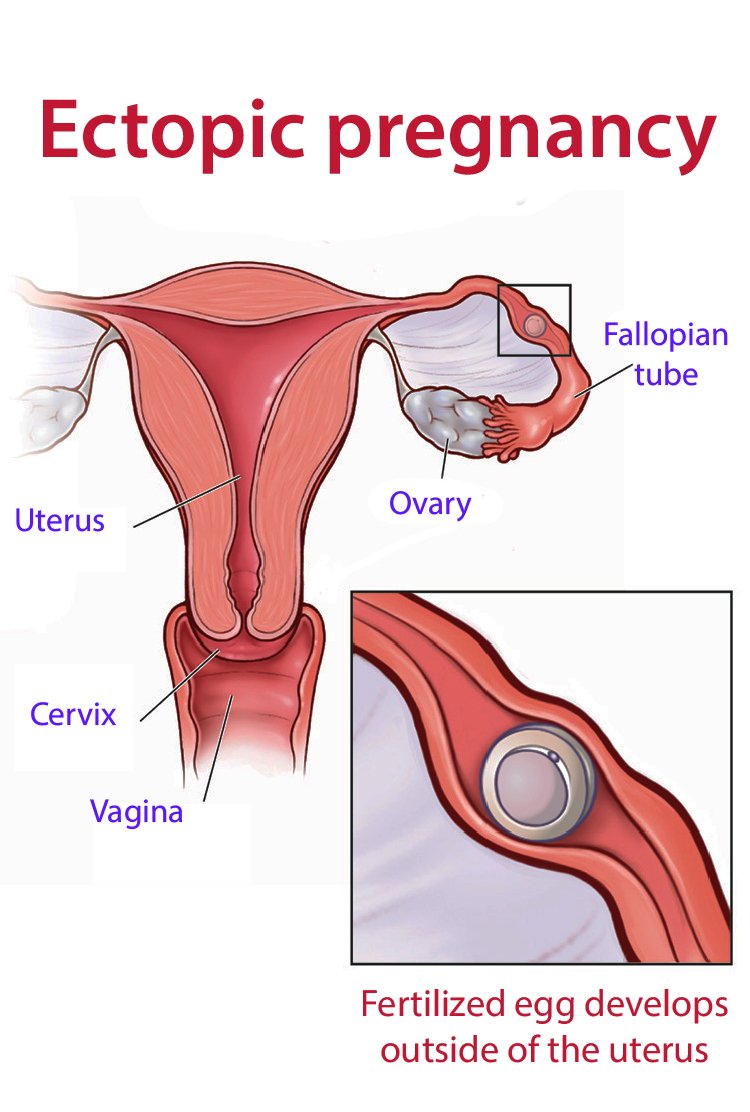Tubal Ligation in Turkey: Closing The Baby Factory
Content
- Tubal Ligation in Turkey: Closing The Baby Factor
- Understanding Tubal Ligation in Turkey
- Types of Tubal Ligation Procedures
- Alternatives to Tubal Ligation
- Recovery and Postoperative Care
- Benefits of Tubal Ligation in Turkey
- Risks and Potential Complications
- Frequently Asked Questions (FAQs)
Tubal Ligation in Turkey: Closing The Baby Factor
Okay, ladies, let's talk about something real. Something that affects us all: the Big Decision. The "Are we really done having kids?" decision.
If you've reached that point, and the thought of another pregnancy sends you running for the hills (or maybe just a large glass of wine), then tubal ligation in Turkey might be something you're seriously considering.
Introduction to Tubal Ligation
So, what exactly is a tubal ligation? Think of it like this: your fallopian tubes are the little highways that connect your ovaries to your uterus. When those highways are open, pregnancy occurs.
Tubal ligation, also known as female sterilization in Turkey or "getting your tubes tied," is like putting up a permanent road closure. It's a tubal ligation surgery in Turkey that blocks or cuts those tubes, preventing the egg and sperm from meeting and thus, preventing pregnancy.
It's a big decision, not something to be taken lightly, but it's incredibly effective. We're talking over 99% effective!
And when it comes to tubal ligation success rates, Turkey boasts some of the highest in the world.
Why is Tubal Ligation So Popular?
Well, several reasons. First, it's permanent. No more remembering to take a pill, no more emergency runs to the pharmacy. It's freedom, pure and simple. It's considered a permanent contraception option in Turkey.
Second, it's highly effective. As we mentioned, it's one of the most reliable forms of birth control out there. And third, for many women, it's about taking control of their bodies and their futures. It's about saying, "I've made my choice," and knowing that choice is respected.
Turkey offers some of the best tubal ligation clinics in the world, often with affordable tubal ligation cost options, especially when you consider the long-term cost of raising a child.
Many international patients choose Turkey for their tubal ligation procedure, thanks to top hospitals for tubal ligation in Turkey and best surgeons for tubal ligation in Turkey.
Plus, with tubal ligation packages for international patients in Turkey, it's easier than ever to access this procedure.
Understanding Tubal Ligation in Turkey
Okay, so we've established why you might be thinking about tubal ligation. Now, let's dive into how this whole thing works.
1. How Tubal Ligation Works
Tubal ligation involves sealing, cutting, or blocking the fallopian tubes so the egg and sperm can never meet. Think of it as a permanent "no swimming" sign at the fertility pool.
This tubal sterilization surgery disrupts the pathway for sperm and eggs to meet, ensuring permanent contraception, like a force field against future pregnancies. It's a reliable, effective method of female sterilization in Turkey.
The tubal ligation procedure itself is relatively quick and straightforward.
2. Indications for Tubal Ligation
Now, tubal ligation isn't for everyone. It's a big decision, a permanent decision. It's ideal for women who are absolutely, positively, 100% certain they do not want any more children. We're talking "I'd rather wrestle a grizzly bear than change another diaper" level of certainty.
It's often recommended when you've completed your family planning (aka, you've got your dream team of kiddos and are officially done adding to the roster) or if pregnancy would be risky due to medical reasons.
Maybe you've got a medical condition that makes pregnancy dangerous, or perhaps previous pregnancies have been complicated. Whatever the reason, if long-term, irreversible contraception is what you're looking for, tubal ligation could be a good fit.
It's a common tubal ligation procedure in Turkey, and there are many best surgeons for tubal ligation in Turkey who can guide you.
Choosing one of the best tubal ligation clinics in Turkey is a crucial first step.

Types of Tubal Ligation Procedures
So, you're leaning towards "no more babies" and tubal ligation sounds like your jam. Awesome! But hold on: there's more than one way to skin a cat (or, in this case, tie a tube).
Let's break down the different types of tubal ligation procedures in Turkey, so you can choose the one that fits your lifestyle like a perfectly worn-in pair of jeans.
Remember, this is something you're doing for you, so finding the right procedure is key!
1. Laparoscopic Tubal Ligation
Think of laparoscopic tubal ligation as the ninja of tubal ligation surgery in Turkey. It's done through a few tiny incisions in your abdomen, using a nifty little tool called a laparoscope (basically, a camera with a light).
This minimally invasive tubal ligation means less pain, smaller scars (barely there!), and a quicker recovery after tubal ligation in Turkey. It's like magic, but with actual medical science.
This is a very common tubal ligation procedure and is offered at most best tubal ligation clinics in Turkey. It's often the preferred method due to its minimal invasiveness and the fact that it offers safe tubal ligation procedures in Istanbul.
If you're looking for affordable tubal ligation with minimal downtime, laparoscopic tubal ligation might be the way to go.
2. Mini-Laparotomy Tubal Ligation
This option is often a great choice for women who have just given birth. It involves a small incision near your belly button or lower abdomen, making it easier to access the fallopian tubes right after delivery. It's usually done postpartum, which can be super convenient.
If you know you're done having kids and are already in the hospital, why not knock it all out at once? Talk about efficient!
This is another type of minimally invasive tubal ligation that offers a fast recovery after tubal ligation in Turkey.
3. Hysteroscopic Tubal Occlusion
Hysteroscopic tubal occlusion is a bit different. Instead of incisions, a small device is inserted through your cervix and into the fallopian tubes to block them.
It's less invasive than surgery, which sounds great. But it isn’t as common or as widely available as the surgical methods. Your doctor can discuss if this is a good option for you.
4. Other Techniques
There are a few other methods, such as using electrocautery (heat), clips, or rings to seal the fallopian tubes.
Your surgeon will discuss the best option for you based on your individual circumstances and medical history.

Alternatives to Tubal Ligation
Okay, so maybe you're not 100% sure about tubal ligation. That's totally okay! It's a big decision, and it's important to explore all your options.
Here are a few alternatives to tubal ligation in Turkey that you might want to consider:
- Long-Acting Reversible Contraceptives (LARCs): These are a great option if you want long-term contraception but aren't ready for something permanent.
LARCs include things like IUDs and implants, which can provide highly effective protection for several years.
They're easy to use, super effective, and can be removed if you decide you want to try for a baby in the future.
- Other Permanent Methods: If you're sure you don't want any more children, but you're not keen on tubal ligation surgery, there's another option: vasectomy.
This is a minor surgical procedure for your male partner that's just as effective as tubal ligation.
It's less invasive and has a quicker recovery time. So, if your partner is willing, it might be a good alternative to consider.

Recovery and Postoperative Care
Alright, so you've had your tubal ligation surgery in Turkey. Congrats! Now, what can you expect?
Don't worry, we're not going to leave you hanging. Here's the lowdown on recovery after tubal ligation in Turkey and what to expect in the short and long term.
1. Short-Term Recovery
The good news is that with minimally invasive tubal ligation like laparoscopic tubal ligation, recovery is usually pretty smooth sailing.
Most women experience minimal discomfort and can get back to their normal routine (minus the baby-making, of course) within a few days. You might feel a bit sore, like you did a few too many crunches at the gym, but nothing too crazy.
Just listen to your body, take it easy, and avoid any heavy lifting or strenuous activities for a week or two. And of course, keep those incisions clean and dry (no bubble baths for a bit, sorry!).
You'll have a follow-up visit with your doctor to check on your healing and remove any stitches, if needed.
2. Long-Term Considerations
Okay, here's the serious part. Tubal ligation is considered permanent. Like, really permanent. So, before you go ahead with any tubal ligation procedure in Turkey, it's crucial to be 100% certain this is the right decision for you.
We're talking "I'd rather eat broccoli for every meal than have another kid" level of certainty.
If you have any doubts, it's always a good idea to talk to your doctor or a counselor.
They can help you explore your options and make sure you're making a decision you won't regret later.
Remember, there are other permanent contraception options in Turkey, and female sterilization via tubal ligation is a big decision.

Benefits of Tubal Ligation in Turkey
Okay, let's talk perks. Why is tubal ligation such a popular choice for women in Turkey and around the world?
Well, besides the obvious "no more babies" thing, there are actually a bunch of benefits to this permanent contraception method.
Let's dive in!
- High Effectiveness: First things first, tubal ligation is super effective. We're talking over 99% effective in preventing pregnancy. That's like saying you'll win the lottery every time you buy a ticket (but way more realistic).
If you're looking for a reliable way to prevent pregnancy, tubal ligation in Turkey is definitely worth considering.
It's one of the most effective female sterilization procedures available, and Turkey boasts high tubal ligation success rates.
- Permanent Contraception: Say goodbye to those pesky birth control pills, those monthly injections, or those awkward IUD insertions. With tubal ligation, you're done. No more worrying about remembering to take a pill every day or scheduling appointments for refills.
It's freedom, pure and simple. It's a one-time tubal ligation procedure that gives you long-term peace of mind.
- Reduced Health Risks: Some studies have shown that tubal ligation can actually lower your risk of ovarian cancer. Bonus!
While this isn't the primary reason to choose this procedure, it's definitely a nice perk.
- Convenience: No more daily pills, no more monthly periods (in some cases), and no more worrying about accidental pregnancies. Tubal ligation is the ultimate "set it and forget it" method of birth control.
It's convenient, it's effective, and it gives you back control over your body and your reproductive choices.

Risks and Potential Complications
Okay, we've covered the good stuff. Now, it's time for a dose of reality. Like any surgical procedure, tubal ligation in Turkey does come with some risks and potential complications.
But don't freak out! We're here to give you the full picture, so you can make an informed decision.
1. Surgical Risks
First, there are the general risks that come with any surgery and anesthesia. These include things like bleeding, infection, and adverse reactions to the anesthesia.
These risks are typically low, especially with minimally invasive tubal ligation like laparoscopic tubal ligation, but it's important to be aware of them.
There's also a very small risk of injury to surrounding organs during the tubal ligation procedure, but this is rare, especially in the hands of experienced surgeons.
2. Specific Complications
Now, let's talk about complications specific to tubal ligation.
- Ectopic Pregnancy: In very rare cases, the tubal ligation procedure might fail, and pregnancy can still occur.
If this happens, there's a slightly increased risk of the pregnancy being ectopic (meaning the fertilized egg implants outside the uterus).
This is a serious condition that requires immediate medical attention.
- Post-Op Pain: You might experience some pain or discomfort at the incision site after the surgery.
This is usually mild and can be managed with over-the-counter pain meds.
But if the pain is severe or doesn't go away, be sure to contact your doctor.
- Regret: This is a big one. Tubal ligation is considered permanent, and it's crucial to be absolutely certain you don't want any more children before going ahead with the procedure.
Life circumstances can change, and some women may regret their decision later on.
If you have any doubts, it's essential to discuss them with your doctor or a counselor before making a final decision.
3. Managing Risks
The best way to minimize risks is to choose a qualified and experienced surgeon. At Cevre Hospital, our best surgeons for tubal ligation in Turkey are experts in their field and have performed countless successful tubal ligation surgeries.
We also provide thorough pre-operative counseling to ensure you understand the procedure and its potential risks and benefits.
And of course, following your post-operative care instructions carefully is crucial for a smooth and healthy recovery.

Frequently Asked Questions (FAQs)
Okay, we know you probably have a million questions swirling around in your head. That's totally normal!
So, let's tackle some of the most frequently asked questions about tubal ligation in Turkey.
- Is tubal ligation reversible? The short answer is... not really. It's considered a permanent form of female sterilization. There are reversal procedures, but they're complex, expensive, and not always successful.
So, before you go ahead with tubal ligation surgery, be absolutely sure it's the right decision for you.
Think of it like getting a tattoo: you want to be sure you'll still love it in 10, 20, or even 30 years!
- How long is the recovery time? The good news is that recovery is usually pretty quick, especially with minimally invasive tubal ligation like laparoscopic tubal ligation.
Most women can return to light activities within a few days and are back to their normal selves (minus the baby-making part) within a week or two.
Of course, everyone's different, and your recovery time might vary depending on the specific tubal ligation procedure you have and your overall health.
- What are the risks of tubal ligation? Like any surgery, there are some risks involved. These include the usual suspects like infection, bleeding, and complications from anesthesia.
However, these risks are generally low, especially when you choose a qualified and experienced surgeon.
At Cevre Hospital, our best surgeons for tubal ligation in Turkey have performed countless successful procedures and are committed to providing safe tubal ligation procedures in Istanbul.
- Can tubal ligation affect my hormonal balance? Nope! Tubal ligation doesn't affect your hormones at all. Your ovaries remain intact and continue to produce hormones normally.
So, you won't experience any hormonal changes or side effects like those associated with some other forms of birth control.
- What should I consider before deciding on tubal ligation? This is a big decision, and it's important to think it through carefully. Consider your long-term family planning goals, the potential for life changes (you never know what the future holds!), and the irreversible nature of the procedure.
If you have any doubts, talk to your doctor or a counselor. They can help you explore your options and make sure you're making a choice you'll be happy with for years to come.
We understand that you might still have questions about tubal ligation in Turkey. That's why we encourage you to reach out to us.
Fill and submit the below lead form contact us for a FREE consultation with one of our specialists at one of the best tubal ligation clinics in Turkey.